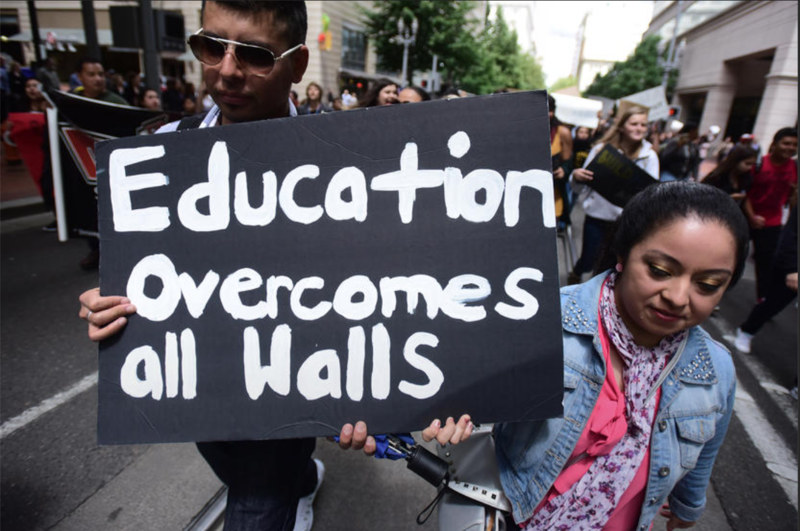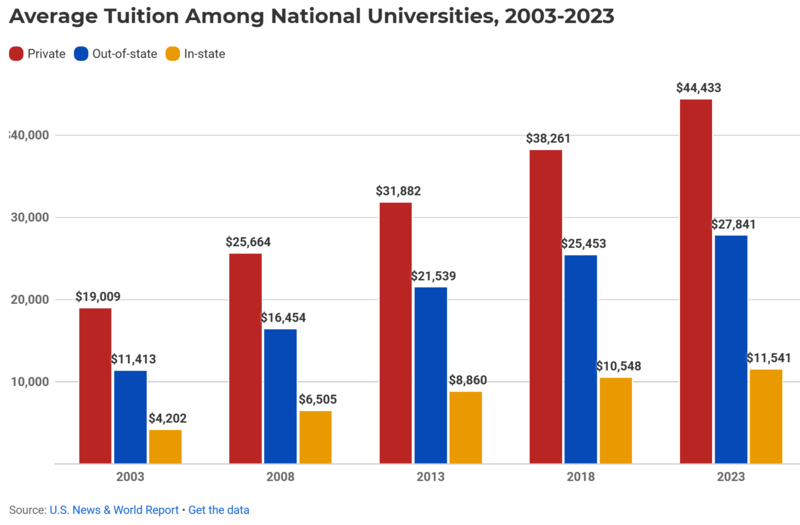Jennie J. Jones’s Updates
Update 3: ASU's Study Hall removes barriers, but is it the answer we need for access to higher learning?
Criticism abounds for new educational disruptor programs that attempt to change the way we approach higher education. It is to be expected that the first iteration of any new idea is not going to meet every need of those who would use it. That is the basis for any program according to disruption theory a "good enough" program available and ubiquitous at a reasonable price, and improve it with user feedback. Yet, is the program actually "good enough"?
Educators who might look into this program will see an educational opportunity that is heavily focused on videos viewed in isolation. Most of the content is recorded and assignments, from what I can gather, are completed alone. After speaking with a Study Hall representative named Tisha, she confirmed that most of the coursework is done via asynchronous instruction with the aid of video lectures.
Critics of this kind of traditional and didactic instruction would call for more options for reflexive learning, which is closer to the kind of meaning-making one would encounter in the world of work and community life in the 21st century. "In a reflexive pedagogy, learning is recursively co-designed. Learners interact with learning designers. Learners contribute content. Learning data inform iterative changes to instruction"(Kalantzis and Cope, 2020; xxv). Though there is a place for traditional methods of instruction, there should be a vibrant balance of pedagogies to support the needs of a diverse range of students. Recursive structures of learning are spaces where learners become co-designers of the course. We call this a balancing of epistemic agency (Cope & Kalantzis, 2015a, 2019b; Montebello et al., 2018a; Smith, McCarthey, & Magnifico, 2017; van Haren & Harroun, 2019). The practice of reflexive learning would be most effective for those proponents of situated cognition who call for active, social, and authentic learning. Sitting in isolation from one's peers, watching videos, and reporting or parroting what one learns is far from social or authentic. "Learning, they argue, is most effective when the learner is actively involved in the learning process when it takes place as a collaborative rather than an isolated activity, and when it takes place in a context relevant to the learner"(Osterman & Kottkamp, 1993; 20). Because this program aims to lower the barriers to access and ease of transferrable college credit, it is likely that the program will use a more robust academic experience with user input.
Another criticism of the Study Hall program is that it still may be unattainable to students due to cost. Yes, the program is significantly cheaper than most universities. In Figure 2, it is clear that tuition has become more expensive by leaps and bounds over the last twenty years. According to the U.S. News and World Report:
- Tuition and fees at private National Universities have jumped 134%.
- Out-of-state tuition and fees at public National Universities have risen 141%.
- In-state tuition and fees at public National Universities have grown the most, increasing 175%(Kerr &Wood, 2022).
Study Hall has made their foundation online classes more affordable by charging only $25 for access to the online class and $400 if the student feels they learned and the grade was acceptable. According to gostudyhall.com's website, "The average college course at a public university is $1,170, and the average college course at a private university is $4,095." Therefore, the student will save a significant amount of money and have the opportunity to "try it out" at a minimal cost. Still, for some students, $400 is still out of reach.
Study Hall does have the opportunity for Scholarship pricing. According to gostudyhall.com, "Scholarship pricing reduces the cost of course credit from $400 to $350 — less than one-third of the cost of the average course at a public university in the U.S., and less than 10% of the average cost of a course at a private university." It is admirable that the pricing of their classes is considerably less than most other higher education offerings, but the very poorest students may not be able to afford even these options.
References:
Cope, B., & Kalantzis, M. (2015a). Assessment and Pedagogy in the Era of Machine-Mediated Learning. In T. Dragonas, K. J. Gergen, S. McNamee, & E. Tseliou (Eds.), Education as Social Construction: Contributions to Theory, Research, and Practice (pp. 350–374). Chagrin Falls, OH: Worldshare Books.
Kalantzis, Mary and Bill Cope. 2020. "The Digital Learner: Towards a Reflexive Pedagogy." Pp. xviii-xxxi in Handbook of Research on Digital Learning, edited by M. Montebello. Hershey PA: IGI Global.
Kerr, E., & Wood, S. (2022, September 13). A Look at College Tuition Growth Over 20 Years. U.S.News.com. Retrieved September 13, 2023, from https://www.usnews.com/education/best-colleges/paying-for-college/articles/see-20-years-of-tuition-growth-at-national-universities
Osterman, K., & Kottkamp, R. (1993). Reflective practice for educators. Newbury Park, CA: Corwin Press.




The community around horror games is one of the best parts. Sharing theories, easter eggs, or even hilarious reactions to terrifying moments creates a sense of camaraderie. Horror is more enjoyable when experienced together, and horror games often bring people together through shared terror.
The sound effects in coreball add to the immersive experience, making every successful shot and miss feel impactful and engaging.